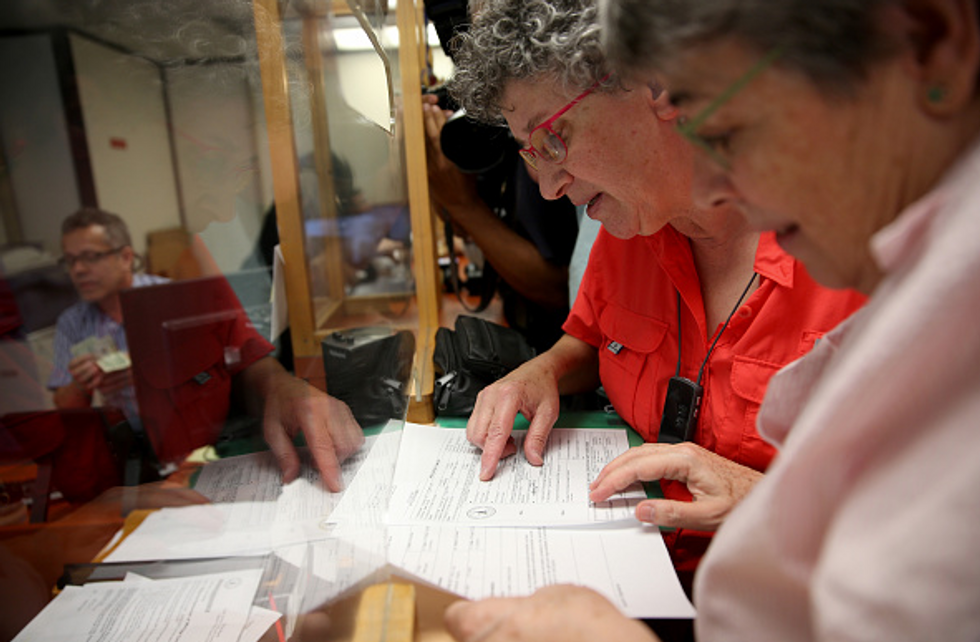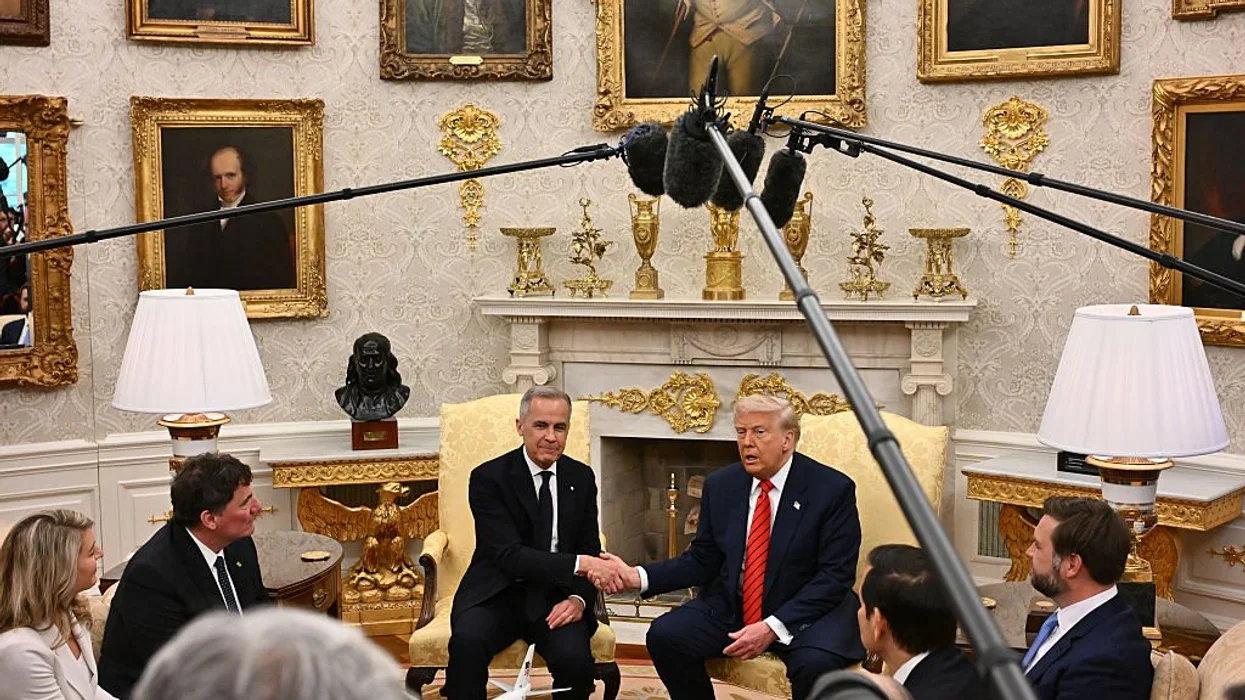Recently, a county clerk in the state of Kentucky refused to issue a marriage license to a gay couple. This resulted in a lawsuit being filed by the gay couple.
U.S. District Judge David Bunning ruled in favor of the gay couple and ordered that the clerk issue marriage licenses to same-sex couples. He further denied the clerk’s request to delay the issuance of licenses as she continues her appeal process.
Although, the court wrote that delaying the ruling would give same-sex couples a “favorable legal ruling with no teeth” and would “prolong the likely violation of their constitutional rights,” he granted the delay after acknowledging that "emotions are running high on both sides of this debate."
While “emotions” may be the reason for the delay, it certainly is not a sufficient legal reason to stop the issuance of licenses. However, having said that, a judge certainly has discretion to issue a pseudo-injunction on a case that he has just decided until such time as an appeal is heard.
The questions are many in this debate.
[sharequote align="center"]Whose Constitutional rights are more important: the Kentucky clerk or the same-sex couple?[/sharequote]
First, whose Constitutional rights are more important, those of the Kentucky clerk or those belonging to the same-sex couple?
Secondly, should the state of Kentucky be required to follow the U.S. Supreme Court decision since the court clearly overstepped its judicial boundaries by creating law rather than merely interpreting law?
And, finally, is there another solution?
In my opinion, both the county clerk and the gay couple have protected rights under the Constitution, according to the law as it currently stands.
The county clerk has rights protected under the Free Exercise Clause of the First Amendment which guarantees that [emphasis added] “Congress shall make no law respecting an establishment of religion, or prohibiting the free exercise thereof...”
The same-sex couple’s rights are also protected under the latest U.S. Supreme Court ruling of Obergefell vs. Hodges, which states that the 14th Amendment now requires states to apply the same marriage laws when it comes to same-sex couples as is applied to marriage between heterosexual couples. Further, the Supreme Court held that same-sex marriages must be recognized in every state.
 Deborah Shure (L) and Aymarah Robles apply for their marriage license at the Clerk of the Courts - Miami-Dade County Court. (Photo by Joe Raedle/Getty Images)
Deborah Shure (L) and Aymarah Robles apply for their marriage license at the Clerk of the Courts - Miami-Dade County Court. (Photo by Joe Raedle/Getty Images)
Critics claim, however, that the ruling for same-sex marriage written by Supreme Court Justice Anthony Kennedy is invalid because it creates law by defining marriage, which before the current ruling, was not defined in the Constitution.
In the past, the Supreme Court has held that there is a fundamental right to marry, but only in cases of the opposite sex. It has been argued that the right to marry regarding same-sex couples is not deeply rooted in the traditions or laws of this nation.
In my opinion, same-sex couples, prior to the Obergefell vs. Hodges decision, already had existing constitutionally protected rights under the Equal Protection Clause of the 14th Amendment.
The question then becomes, whose rights are more important? If the courts choose one party over another in the Kentucky case then plainly they are indicating that one constitutional right is favored over another. The result will be that one constitutional right has been ignored.
Bunning set the stage for this when he said that the issuance of a marriage license does not impede the Kentucky clerk’s freedom to believe what she wants and said that the clerk’s “religious convictions cannot excuse her from performing the duties that she took an oath to perform as Rowan County Clerk.”
Those who take a broader view in interpreting the constitutional provision as to religious freedoms would argue that Bunning’s view is too narrow in scope and that the “right of choice in religious practice is independently valuable.”
The current Kentucky case seems ripe for an appeal to resolve the issue as far as the state of Kentucky is concerned and a same-sex couple’s right to marry.
Therefore, at least in part, the questions on appeal in the Kentucky county clerk’s refusal to issue licenses to same-sex couples could be 1) Should states refuse to follow the Supreme Court ruling because the court overstepped its boundaries when it created law? Prior to the ruling, only the states had defined marriage in their constitutions and 2) Do the Constitutional rights of same-sex couples nullify the constitutionally protected religious freedom rights of a Kentucky clerk?
One simple way to resolve all of the issues would be for the government to get out of the marriage licensing business altogether. Marriage licenses were not always required or issued in America.
Until the mid-19th century, common law marriages were valid. It was the states that eventually began to issue marriage licenses. Obviously, the states saw the potential for revenue when it began to require licensing. Perhaps other reasons existed as well for the licensing requirement in those days.
However, today, why not allow everyone, with a few exceptions, who are 18 years and older to marry in their church, their synagogue or wherever else they choose without first having to be issued a license.
If this was already in place, then the Kentucky clerk’s religious freedoms would not be in question nor would there be an issue as to the sex of the couple.
A certificate from the organization who performed the ceremony would be issued “after the fact” and later registered for a fee with the state. There would be no questions asked as to whether the couple was heterosexual or same-sex and the state would continue to receive revenue.
The process would be similar to registering a car with the Department of Motor Vehicles after its purchase. No big deal!
No constitutional issues involved. Problem solved!
–
TheBlaze contributor channel supports an open discourse on a range of views. The opinions expressed in this channel are solely those of each individual author.


 Deborah Shure (L) and Aymarah Robles apply for their marriage license at the Clerk of the Courts - Miami-Dade County Court. (Photo by Joe Raedle/Getty Images)
Deborah Shure (L) and Aymarah Robles apply for their marriage license at the Clerk of the Courts - Miami-Dade County Court. (Photo by Joe Raedle/Getty Images)


